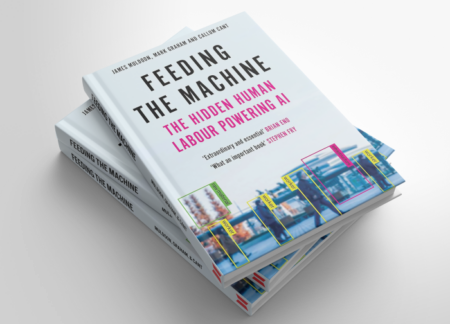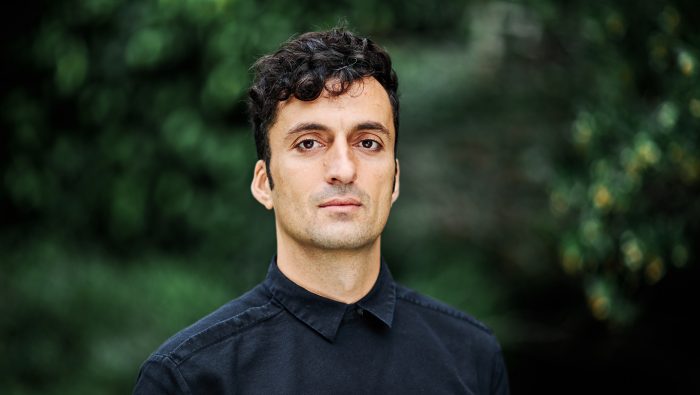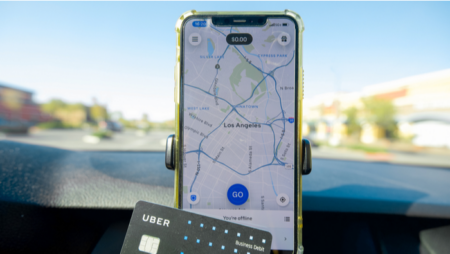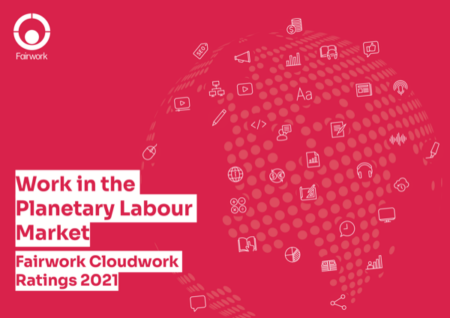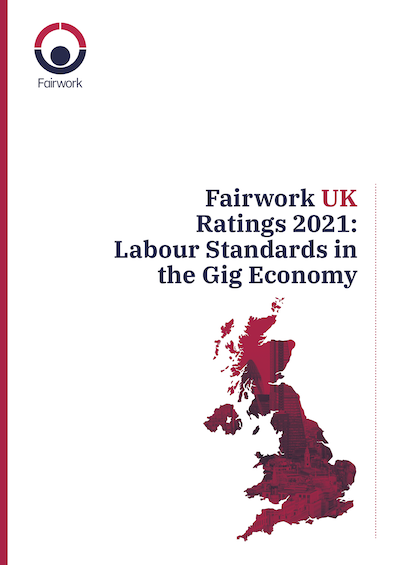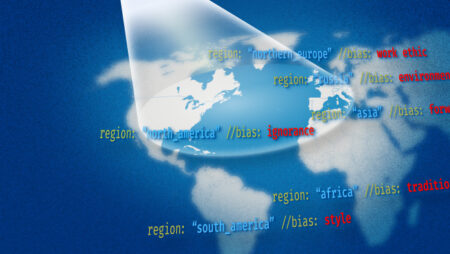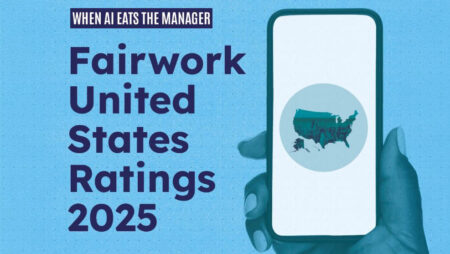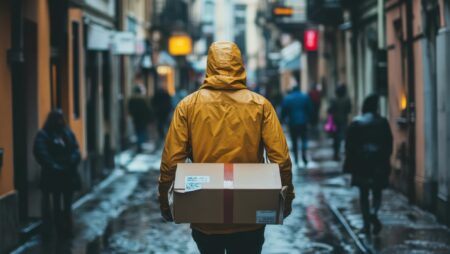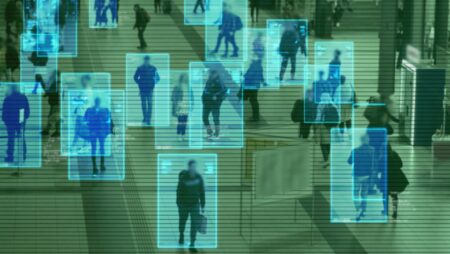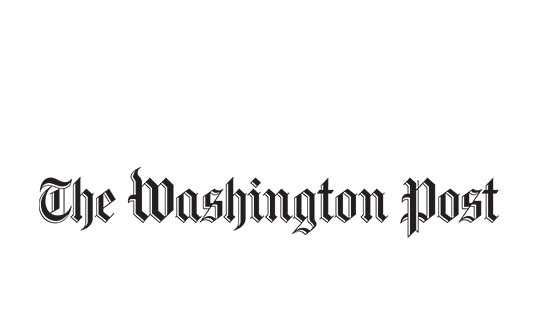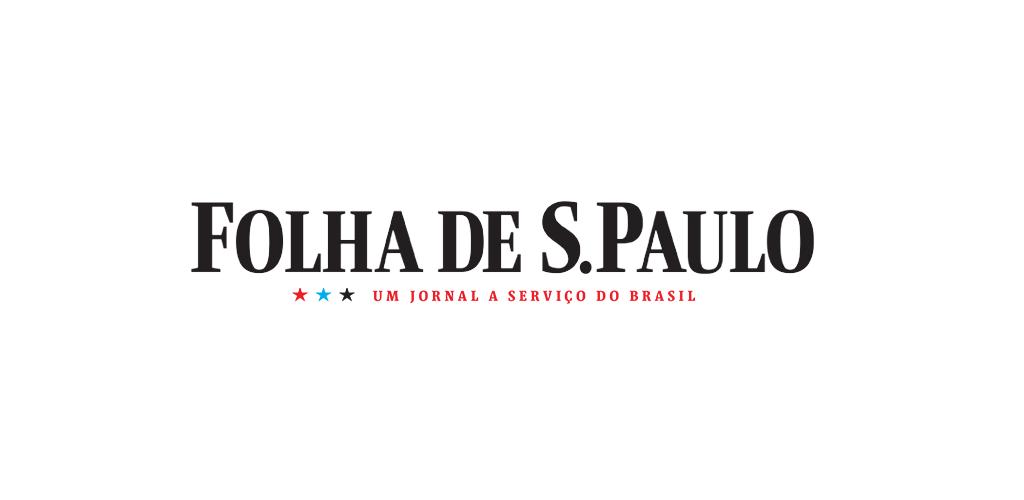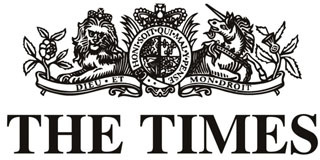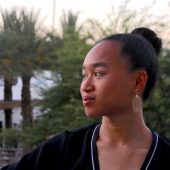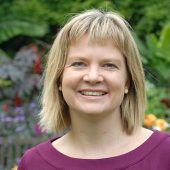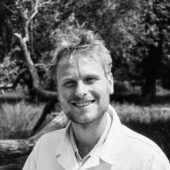Selected publications
Graham, M. 2025. There are no rights ‘in’ cyberspace. In Wagner, B., Kettemann, M. C., Vieth, K., and Montgomery, S (eds). Research Handbook on Human Rights and Digital Technology (2nd edition). Cheltenham: Edward Elgar. 26-34. https://doi.org/10.4337/9781035308514.00008
Heeks, R., Wall, P. J., and Graham, M. 2024. Pragmatist-critical realism as a development studies research paradigm. Development Studies Research, 12(1). https://doi.org/10.1080/21665095.2024.2439407
Parthasarathy, B., Srinivasan, J., Bilahari, M., Kalita, R., Neerukonda, M., Balaraj, M., Singh, A., and Graham, M. The Developmental Possibilities of Gig Work on Digital Platforms: The Limits to the Hope and Hype in India. The Indian Journal of Labour Economics. https://doi.org/10.1007/s41027-024-00522-4.
López, T., Ustek-Spilda, F., Feuerstein, P., Ferrari, F., and Graham, M. 2024. The Fairwork Project: Promoting Good Labor Practices in the Digital Platform Economy through Action Research. In Schäfer, M. T., Van Es, K., and Lauriault, T. (eds.) Collaborative Research in the Datafied Society: Methods & Practices for Investigation & Intervention. Amsterdam: Amsterdam University Press. 149-160.
Katta, S., Ferrari, F., van Doorn, N., & Graham, M. 2024. Migration, migrant work(ers) and the gig economy. Environment and Planning A: Economy and Space. https://doi.org/10.1177/0308518X241250168
Ferrari, F., Bertolini, A, Borkert, M., and Graham, M. 2024. The German platform economy: Strict regulations but unfair standards?, Digital Geography and Society. https://doi.org/10.1016/j.diggeo.2024.100084
Muldoon, J., Cant, C., Wu, B., and Graham, M. 2024. A typology of artificial intelligence data work. Big Data & Society, 11(1). https://doi.org/10.1177/20539517241232632
López, T., Feuerstein, P., de Vera, J., Varaschin, G,. Karlidağ, Z., and Graham, M. 2024. Cloudwork als Chance für den Globalen Süden? Einkommens- und professionelle Entwicklungschancen von Online-Plattformarbeiter*innen im Übersetzungs- und Transkriptionssektor. (Cloudwork as an opportunity for the Global South? Income and professional development opportunties of online platform workers in the translation and transcription sector). Standort: Zeitschrift für Angewandte Geographie. https://doi.org/10.1007/s00548-023-00904-8
Rebechi, C. N., Oliveira, M. A., López, T., Valente, J., Grohman, R., Salvagni, J., Figaro, R., Carelli, R., da Silva, V., Marques, A. F., Baptistella, C. V., Gameleira, J., Farias, H., Graham, M., and Howson, K. 2024. Avaliando Relações de Trabalho na Economia de Plataformas: O Projecto Fairwork No Brasil E Na América Latina. In Soberania Popular Na Era Digital. Ed. Schnieder, A. São Paulo: Hucitec Editora. 93-108.
Muldoon, J., Cant, C., Graham, M., and Ustek-Spilda, F. 2023. The poverty of ethical AI: impact sourcing and AI supply chains. AI & Society. https://doi.org/10.1007/s00146-023-01824-9
Alyanak, O., Cant, C., López Ayala, T., Badger, A., & Graham, M. 2023. Platform work, exploitation, and migrant worker resistance: Evidence from Berlin and London. The Economic and Labour Relations Review, 1-22. doi:10.1017/elr.2023.34 (shortlisted for the 2023 Nevile-Plowman Best Article Prize)
Van Belle, J.-P., Howson, K., Graham, M., Heeks, R., Bezuidenhout, L., Tsibolane, P., du Toit, D., Fredman, S., and Mungai, P. 2023. Fair work in South Africa’s gig economy: A journey of engaged scholarship, Digital Geography and Society. https://doi.org/10.1016/j.diggeo.2023.100064
Poorthuis, A., Zook, M., Shelton, T., Graham, M, and Stephens, M. 2023. Using Digital Social Data in Geographic Research. In Key Methods in Geography 4th edition. eds. Clifford, N., Cope, M., and Gillespie, T. London: Sage. 278-300.
Bertolini, A., Graham, M., Neerukonda, M., Ojanperä, S., Parthasarathy, B., Srinivasan, J., Taduri, P., and Ustek-Spilda, F. 2023. Platformizing Informality, One Gig at a Time. In: Surie, A., Huws, U. (eds) Platformization and Informality. Dynamics of Virtual Work. Palgrave Macmillan, Cham. 13-45 https://doi.org/10.1007/978-3-031-11462-5_2
理查德·希克斯、马克·格雷厄姆、保罗·蒙盖、让保罗·范·贝拉、杰米·伍德科克,姚建华、刘君怡编译:《公平工作框架的开发与应用:基于体面劳动标准的零工工作系统评估》,《国外社会科学前沿》2023年第5期,第69—82页。(Richard Heeks, Mark Graham, Paul Mungai, Jean-Paul Van Belle and Jamie Woodcock, Systematic Evaluation of Gig Work against Decent Work Standards: The Development and Application of the Fairwork Framework, translated by Jianhua Yao and Junyi Lun, Journal of International Social Sciences, vol. 516, no. 5, pp. 69-82.)
Howson, K., Johnston, H., Cole, M., Ferrari, F., Ustek-Spilda, F., & Graham, M. 2023. Unpaid labour and territorial extraction in digital value networks. Global Networks, 23(4), 732– 754. https://doi.org/10.1111/glob.12407
Braesemann F, Stephany F, Teutloff O, Kässi O, Graham M, Lehdonvirta V. 2022. The global polarisation of remote work. PLoS ONE 17(10): e0274630. https://doi.org/10.1371/journal.pone.0274630
Cole, M., Cant, C., Ustek-Spilda, F., Graham, M. 2022. Politics by Automatic Means? A Critique of Artificial Intelligence Ethics at Work. Frontiers in Artificial Intelligence. 5. DOI=10.3389/frai.2022.869114
van Doorn, N., Ferrari, F., and Graham, M. 2022. Migration and Migrant Labour in the Gig Economy: An Intervention. Work, Employment and Society. DOI: 10.1177/09500170221096581
Ustek-Spilda, F., Howson, K., Johnston, H., Bertolini, A., Feuerstein, P., Bezuidenhout, L., Alyanak, O., and Graham., M. 2022. Is anonymity dead?: Doing critical research on digital labour platforms through platform interfaces. Work Organisation, Labour & Globalisation. Vol. 16(1):72-87. DOI: 10.13169/workorgalaboglob.16.1.0072
Howson, K., Ferrari, F., Ustek-Spilda, F., Salem, N., Johnston, H., Katta, S., Heeks, R., and Graham, M. (2021). Driving the digital value network: Economic geographies of global platform capitalism. Global Networks. 22:4, 631-648, https://doi.org/10.1111/glob.12358
Howson, K., Feuerstein, P., Ustek-Spilda, F., Bertolini, A., Johnston, H., and Graham, M. (2021). Online Labor Platforms: Power Sans Accountability?. Global Dialogue, 11(3). 26-28.
Fredman, S., du Toit, D., Graham, M., Cherupara Vadekkethil, A., Bhatia, G., & Bertolini, A. (2021). International Regulation of Platform Labor: A Proposal for Action. Weizenbaum Journal of the Digital Society, 1(1), w1.1.4. https://doi.org/10.34669/wi.wjds/1.1.4
Lehdonvirta, V., Hjorth, I., Barnard, H., and Graham, M. (2021). Global earnings disparities in remote platform work: liabilities of origin? In Haidar, J., and Keune, M. (2021) Work and Labour Relations in Global Platform Capitalism. Edward Elgar, Cheltenham. 111-133.
Graham, M., Lehdonvirta, V., Wood, A. J., Barnard, H., Hjorth, I., and Simon, D. P. (2021). The uneven potential of online platform work for human development at the global margins. In Drahokoupil, J., and Vandael, K. (2021). A Modern Guide To Labour and the Platform Economy. Edward Elgar, Cheltenham. 194–208. https://doi.org/10.4337/9781788975100
Englert, S., Graham. M., Fredman, S., du Toit, D., Badger, A., Heeks, R., and Van Belle, J. P. (2021). Workers, Platforms and the State: The Struggle over Digital Labour Platform Regulation. In Drahokoupil, J., and Vandael, K. (2021). A Modern Guide to Labour and the Platform Economy. Edward Elgar, Cheltenham. 162-176. https://doi.org/10.4337/9781788975100
Tsibolane B., Albornoz M.B., Arriagada A., Putri T.E., Van Belle J.P., Chavez H., Heeks R., Howson K., Bonhomme M., Leyton J., Ibáñez F., Bezuidenhout L., Graham M. (2021). Fairwork in the platform economy: A Global South perspective. In Albrieu, R. (Ed.). (2021). Cracking the future of work. Automation and labor platforms in the Global South, FOWIGS, Chile, pp.180-225. ISBN: 978-987-1479-51-1.
Heeks, R., Graham, M., Mungai, P., Van Belle, J-P,. and Woodcock, J. (2021) Systematic evaluation of gig work against decent work standards: The development and application of the Fairwork framework, The Information Society, DOI: 10.1080/01972243.2021.1942356
Bertolini A., Howson K., Katta S., Ustek-Spilda F., Graham M. (2021) Gig Economy and Sustainable Development. In: Leal Filho W., Azul A.M., Brandli L., Lange Salvia A., Wall T. (eds) Decent Work and Economic Growth. Encyclopedia of the UN Sustainable Development Goals. Springer, Cham. https://doi.org/10.1007/978-3-319-71058-7_105-1
Howson, K., Ustek Spilda, F., Bertolini, A., Heeks, R., Ferrari, F., Katta, S., Cole, M., Aguera Reneses, P., Salem, N., Sutcliffe, D., Steward, S., and Graham, M. 2021. Stripping back the mask: Working conditions on digital labour platforms during the COVID-19 pandemic. International Labour Review . https://doi.org/10.1111/ilr.12222 (also translated into French: https://onlinelibrary.wiley.com/doi/full/10.1111/ilrf.12249)
Bertolini, A., Borkert, M., Ferrari, F., and Graham, M. 2021. Towards decent work in the digital age: introducing the fairwork project in Germany. Zeitschrift für Arbeitswissenschaft . https://doi.org/10.1007/s41449-021-00247-w
Ferrari, F. and Graham, M. 2021. Fissures in algorithmic power: platforms, code, and contestation. Cultural Studies. https://doi.org/10.1080/09502386.2021.1895250 (also translated into Portuguese: Ferrari, F. and Graham, M. 2021. Fissuras no Poder Algorítmico: plataformas, códigos e contestação. Fronteiras. 23(2). 207-219.
Heeks, R., Gomez-Morantes, J. E., Graham, M., Howson, K., Mungai, P., Nicholson, B., Van Belle, J-P. 2021. Digital platforms and institutional voids in developing countries: The case of ride-hailing markets. World Development. https://doi.org/10.1016/j.worlddev.2021.105528
Osborne, C., Graham, M., & Dittus, M. 2021. Edit Wars in a Contested Digital City: Mapping Wikipedia’s Uneven Augmentations of Berlin. The Professional Geographer. 73(1). 85-95, DOI: 10.1080/00330124.2020.1800493
Graham, M. 2020. Regulate, replicate, and resist – The conjunctural geographies of platform urbanism. Urban Geography. 41:3, 453-457. DOI: 10.1080/02723638.2020.1717028
Wahome, M., and Graham, M. 2020. Spatially shaped imaginaries of the digital economy. Information, Communication & Society. 23:8, 1123-1138, DOI: 10.1080/1369118X.2019.1701696
Fredman, S., du Toit, D., Graham, M., Howson, K., Heeks, R., van Belle, J-P., Mungai, P., & Osiki, A. 2020 Thinking Out of the Box: Fair Work for Platform Workers, King’s Law Journal, DOI: 10.1080/09615768.2020.1794196
Graham, M., and De Sabbata, S. 2020. The Geographic Contours of Openness. In Smith, M. and Seward, R. K. (eds) 2020 Making Open Development Inclusive: Lessons from IDRC Research. Cambridge MA: MIT Press. 119-142.
Anwar, M. A. and Graham, M. 2020. Digital Labour at Economic Margins: African Workers and the Global Information Economy, Review of African Political Economy. (pre-publication version here)
Katta, S., Badger, A., Graham, M., Howson, K., Ustek-Spilda, F., & Bertolini, A. 2020. (Dis)embeddedness and (de)commodification: COVID-19, Uber, and the unravelling logics of the gig economy. Dialogues in Human Geography. DOI: 10.1177/2043820620934942
Graham, M., Woodcock, J., Heeks, R., Mungai, P., Van Belle, J-P., du Toit, D., Fredman, S., Osiki, A., van der Spuy, A., Silberman, S. 2020. The Fairwork Foundation: Strategies for improving platform work in a global context. Geoforum. DOI: 10.1016/j.geoforum.2020.01.023 (also translated by into simplified Chinese by Jianhua Yao (2022), Labour Union Studies, vol. 188, no. 4, pp. 66-74.)
Anwar, M. A. and Graham, M. 2020. Between a Rock and a Hard Place: Freedom, Flexibility, Precarity and Vulnerability in the Gig Economy in Africa, Competition and Change. Special Issue on Digitalisation and Labour in the Global Economy.
Stephany, F., Braesemann, F. & Graham, M. 2020. Coding together – coding alone: the role of trust in collaborative programming, Information, Communication & Society, DOI: 10.1080/1369118X.2020.1749699
Gong, Z., Cai, T., Thill, J-C., Hale, S., Graham, M. 2020. Measuring relative opinion from location-based social media: A case study of the 2016 U.S. presidential election. PLoS ONE 15(5): e0233660. DOI: 10.1371/journal.pone.0233660
Anwar, M. A. and Graham, M. 2019. Hidden Transcripts of the Gig Economy: Labour Agency and the New Art of Resistance among African Gig Workers. Environment and Planning A: Economy and Space. https://doi.org/10.1177/0308518X19894584
Dittus, M. and Graham, M. 2019. Mapping Wikipedia’s Geolinguistic Contours. Digital Culture & Society. 5(1). 147-164.
Braesemann, F., Stoehr, N., and Graham, M.. 2019. Global networks in collaborative programming Regional Studies, Regional Science. 6(1). 371-373 DOI: 10.1080/21681376.2019.1588155
Graham, M., and Anwar, M. A. 2019. The Global Gig Economy: Towards a Planetary Labour Market? First Monday. 24(4). doi.org/10.5210/fm.v24i4.9913. (republished in In Larsson A and Teigland R (Eds) ‘The Digital Transformation of Labor: Automation, the Gig Economy and Welfare. London: Routledge).
Ojanperä, S., Graham, M., and Zook, M. 2019. The Digital Knowledge Economy Index: Mapping Content Production. The Journal of Development Studies. DOI: 10.1080/00220388.2018.1554208.
Anwar, M. A., and Graham, M. 2019. Does economic upgrading lead to social upgrading in contact centers? Evidence from South Africa. African Geographical Review. DOI: 10.1080/19376812.2019.1589730
Wood, A., Graham, M., Lehdonvirta, A., and Hjorth, I. 2019. Networked but Commodified: The (Dis)Embeddedness of Digital Labour in the Gig Economy. Sociology. https://doi.org/10.1177/0038038519828906
Wood A.J, Graham M and Anwar M. A. 2019. Minimum Wages for Online Labor Platforms? Regulating the Global Gig Economy. In Larsson A and Teigland R (Eds) ‘The Digital Transformation of Labor: Automation, the Gig Economy and Welfare. London: Routledge. 74-79.
Graham, M. 2019. Changing Connectivity and Digital Economies at Global Margins. In Graham, M. (ed) 2019 Digital Economies at Global Margins. Cambridge MA: MIT Press. 1-18.
Foster, C., Graham, M., and Waema, T. M. 2019. Making Sense of Digital Disintermediation and Development: The Case of the Mombasa Tea Auction. In Graham, M. (ed) 2019 Digital Economies at Global Margins. Cambridge MA: MIT Press. 55-78.
Graham, M., Hjorth, I., and Lehdonvirta, V. 2019. Digital Labor and Development: Impacts of Global Digital Labor Platforms and the Gig Economy on Worker Livelihoods. In Graham, M. (ed) 2019 Digital Economies at Global Margins. Cambridge MA: MIT Press. 269-294.
Graham, M. 2019. There are no rights ‘in’ cyberspace. In Wagner, B., Kettemann, M. C., and Vieth, K. (eds). Research Handbook on Human Rights and Digital Technology. Cheltenham: Edward Elgar. 24-32.
Wood, A., Graham, M., Lehdonvirta, A., and Hjorth, I. 2019. Good Gig, Bad Big: Autonomy and Algorithmic Control in the Global Gig Economy. Work, Employment and Society. 33(1). 56-75 https://doi.org/10.1177/0950017018785616
Graham, M. and Anwar, M.A. 2018. Digital Labour In: Digital Geographies Ash, J., Kitchin, R. and Leszczynski, A. (eds.). Sage: London. 177-187. (translated into Portuguese in Antunes, R. 2020. Uberização, trabalho digital e Indústria 4.0 (Mundo do trabalho)).
Graham, M. and Anwar, M. A. 2018. Two Models for a Fairer Sharing Economy. In Davidson, N. M., Finck, M., Infranca, J. J. (eds). The Cambridge Handbook of The Law of the Sharing Economy. Cambridge: Cambridge University Press. 316-327.
Wood, A., Lehdonvirta, V., and Graham, M. 2018. Workers of the Internet unite? Online freelancer organisation among remote gig economy workers in six Asian and African countries. New Technology, Work and Employment. 33(2). 95-112. 10.1111/ntwe.12112. (pre-publication version here)
Graham, M., De Sabbata, S., Straumann, R., and Ojanperä, S. 2018. Uneven Digital Geographies…and Why They Matter. In Kollektiv Orangotango+ (eds). This is Not an Atlas. Bielefeld: transcript Verlag. 310-318.
Shaw, J., and Graham, M. 2018. Ein Informationelles Recht auf Stadt. In Bauriedl, S., and Strüver, A. (eds). Smart City – Kritische Perspektiven auf die Digitalisierung in Städten. Bielefeld: transcript Verlag. 177-204.
Dittus, M., Wright, J., and Graham, M. 2018. Platform Criminalism: The ‘Last-Mile’ Geography of the Darknet Market Supply Chain. In Proceedings of the 2018 World Wide Web Conference (WWW ’18). International World Wide Web Conferences Steering Committee, Republic and Canton of Geneva, Switzerland, 277-286. DOI: https://doi.org/10.1145/3178876.3186094 (pre-publication version here)
Lehdonvirta, V., Kässi, O., Hjorth, I., Barnard, H., and Graham, M. 2018. The Global Platform Economy: A New Offshoring Institution Enabling Emerging-Economy Microproviders. Journal of Management. https://doi.org/10.1177/0149206318786781
Graham, M. and Woodcock, J. 2018. Towards a Fairer Platform Economy: Introducing the Fairwork Foundation. Alternate Routes. 29. 242-253.
Zook, M. and Graham, M. 2018. Hacking Code/Space: Confounding the Code of Global Capitalism. Transactions of the Institute of British Geographers. 43 (3). 390-404. 10.1111/tran.12228.
Graham, M. 2018. The Virtual Palimpsest of the Global City Network. In The Globalizing Cities Reader. eds. X. Ren and R. Keil. Abingdon:Routledge. 198-204.
Stephens, M., Tong, L., Hale, S., and Graham, M. 2018. Misogyny, Twitter, and the Rural Voter. In Watrel, R. H., Weichelt, R., Davidson, F. M., Heppen, J., Fouberg, E. H., Archer, J. C., Morrill, R. L., Shelley, F. M., Martis, K. C. (eds). Atlas of the 2016 Elections. New York: Rowman & Littlefield. 55-57.
Graham, M. 2018. Rethinking the Geoweb and Big Data: Future Research Directions. In Thinking Big Data in Geography: New Regimes, New Research. Thatcher, J., Eckert, J., and Shears, A. (eds). University of Nebraska Press. Lincoln. 231-236.
Graham, M., Ojanpera, S., Anwar, M. A., and Friederici, N. 2017. Digital Connectivity and African Knowledge Economies. Questions de Communication. 32. 345-360.
Foster, C., Graham, M., Mann, L., Waema, T., and Friederici, N. 2017. Digital Control in Value Chains: Challenges of Connectivity for East African Firms. Economic Geography. 94(1) 68-86.
Ballatore, A., Graham, M., and Sen, S. 2017. Digital Hegemonies: The Localness of Search Engine Results. Annals of the American Association of Geographers. 107(5) 1194-1215 DOI:10.1080/24694452.2017.1308240.
Graham, M., Hjorth, I., Lehdonvirta, V. 2017. Digital labour and development: impacts of global digital labour platforms and the gig economy on worker livelihoods. Transfer: European Review of Labour and Research. 23 (2) 135-162. https://doi.org/10.1177/1024258916687250.
Ojanperrä, A., Graham, M., Straumann, R., De Sabbata, S., and Zook, M. 2017. Engagement in the Knowledge Economy: Regional Patterns of Content Creation with a Focus on Sub-Saharan Africa. Information Technologies and International Development. 13. 33-51.
Blank, G., Graham, M., Calvino, C. 2017. Local Geographies of Digital Inequality. Social Science Computer Review. DOI: https://doi.org/10.1177/0894439317693332
Shaw, J. and Graham, M. 2017. An Informational Right to the City? Code, Content, Control, and the Urbanization of Information. Antipode. 49(4) 907-927. 10.1111/anti.12312
Friederici, N. Ojanperä, S., and Graham, M. 2017. The Impact of Connectivity in Africa: Grand Visions and the Mirage of Inclusive Digital Development. Electronic Journal of Information Systems in Developing Countries. 79(2) 1-20.
Graham, M. 2017. Digitally Augmented Geographies. In Understanding Spatial Media. eds. Kitchin, R., Lauriault, T. P., and Wilson, M. W. London: Sage. 44-55.
Foster, C. and Graham, M. 2017. Reconsidering the Role of the Digital in Global Production Networks. Global Networks. 17(1) 68-88 DOI: 10.1111/glob.12142.
Ford, H. and Graham, M. 2016. Provenance, Power, and Place: Linked Data and Opaque Digital geographies. Environment and Planning D: Society and Space. doi:10.1177/0263775816668857 34(6). 957-970. (pre-publication version here).
Smart, C., Donner, J., and Graham, M. 2016. Connecting the World from the Sky: Spatial Discourses Around Internet Access in the Developing World. Eighth International Conference on Information and Communication Technologies and Development. http://dx.doi.org/10.1145/2909609.2909659
Straumann, R. K., Graham, M. 2016. Who isn’t online? Mapping the ‘Archipelago of Disconnection.’Regional Studies, Regional Science. 3(1) 96-98.
Mann, L and Graham, M. 2016 The Domestic Turn: Business Process Outsourcing and the Growing Automation of Kenyan Organisations. Journal of Development Studies 52:4, 530-548, DOI: 10.1080/00220388.2015.1126251. (pre-publication version here)
Graham, M., and Foster, C. 2016. Geographies of Information Inequality in Sub-Saharan Africa, The African Technopolitan. 5 78-85.
Graham, M., Mann, L., Friederici, N. and Waema, T. 2016. Growing the Kenyan Business Process Outsourcing Sector, The African Technopolitan. 5 93-95
Ford, H., and Graham, M. 2016. Semantic Cities: Coded Geopolitics and the Rise of the Semantic Web. In Code and the City. eds. Kitchin, R., and Perng, S-Y. London: Routledge. 200-214.
Poorthuis, A., Zook, M., Shelton, T., Graham, M, and Stephens, M. 2016. Using Geotagged Digital Social Data in Geographic Research. In Key Methods in Geography. eds. Clifford, N., French, S., Cope, M., and Gillespie, T. London: Sage. 248-269.
Graham, M., Straumann, R., Hogan, B. 2015. Digital Divisions of Labor and Informational Magnetism: Mapping Participation in Wikipedia. Annals of the Association of American Geographers. 105(6) 1158-1178. doi:10.1080/00045608.2015.1072791.(pre-publication version here)
Graham, M. 2015. Information Geographies and Geographies of Information New Geographies 7 159-166.
Graham, M., De Sabbata, S., Zook, M. 2015. Towards a study of information geographies:(im)mutable augmentations and a mapping of the geographies of information Geo: Geography and Environment.2(1) 88-105. doi:10.1002/geo2.8
Graham, M. 2015. Contradictory Connectivity: Spatial Imaginaries and Techno-Mediated Positionalities in Kenya’s Outsourcing Sector. Environment and Planning A 47 867-883 (pre-publication version here).
Graham, M., Andersen, C., and Mann, L. 2015 Geographical Imagination and Technological Connectivity in East Africa. Transactions of the Institute of British Geographers 40(3) 334-349. (pre-publication version here).
Graham, M and De Sabbata, S. 2015 Mapping Information Wealth and Poverty: The Geography of Gazetteers. Environment and Planning A 47(6). 1254-1264. (pre-publication version here).
Sen, S. W., Ford, H., Musicant, D. R., Graham, M., Keyes, O. S. B., Hecht, B. 2015 Barriers to the Localness of Volunteered Geographic Information. CHI 2015 (pre-publication version here).
Allagui, I., Graham, M., and Hogan, B. 2015. Wikipedia Arabe et la Construction Collective du Savoir. In Wikipedia, objet scientifique non identifie. eds. Barbe, L., Merzeau, L., and Schafer, V. Paris: Presses Universitaries du Paris Ouest. 177-194.
Zook, M., Graham, M., and Boulton, A. 2015. Crowd-sourced Augmented Realities: Social Media and the Power of Digital Representation. In Mediated Geographies International Handbook. eds. Mains, S., Cupples, J.,and Lukinbeal, C. New York: Springer. 223-242.
Graham, M., Hogan, B., Straumann, R. K., and Medhat, A. 2014. Uneven Geographies of User-Generated Information: Patterns of Increasing Informational Poverty. Annals of the Association of American Geographers. 104(4). 746-764. (pre-publication version here)
Graham, M. 2014 Inequitable Distributions in Internet Geographies: The Global South is Gaining Access But Lags in Local Content. innovations 9(3-4). 17-34.
Choi, J. H-j., and Graham, M. 2014 Urban Food Futures: ICTs and Opportunities. Futures 62(B; October). 151-154. (pre-publication version here)
Shelton, T., Poorthuis, A., Graham, M,. and Zook, M. 2014. Mapping the Data Shadows of Hurricane Sandy: Uncovering the Sociospatial Dimensions of ‘Big Data’. Geoforum 52. 167-179. (open pre-publication version here).
Dutton, W. H., and Graham, M. 2014. Introduction. In Society and the Internet: How Networks of Information and Communication are Changing our Lives. eds. Graham, M., and Dutton, W. H. Oxford: Oxford University Press. 1-22.
Graham, M. 2014. Internet Geographies: Data Shadows and Digital Divisions of Labour. In Society and the Internet: How Networks of Information and Communication are Changing our Lives. eds. Graham, M., and Dutton, W. H. Oxford: Oxford University Press. 99-116.
Graham, M. 2014. A Critical Perspective on the Potential of the Internet at the Margins of the Global Economy. In Society and the Internet: How Networks of Information and Communication are Changing our Lives. eds. Graham, M., and Dutton, W. H. Oxford: Oxford University Press. 301-318.
Graham, M. 2014. The Knowledge Based Economy and Digital Divisions of Labour. In Companion to Development Studies, 3rd edition, eds V. Desai, and R. Potter. Hodder. 189-195.
Graham, M. and Zook, M. 2014. Augmentierte Geographien: Zur digitalen Erfahrung des städtischen Alltags. Geographische Rundschau. 65(6) 18-25.
Yasseri, T., Spoerri, A., Graham, M. and Kertesz, J. 2014. The Most Controversial Topics in Wikipedia: A Multilingual and Geographical Anlaysis. In Global Wikipedia: International and Cross-Cultural Issues in Online Collaboration. eds. Fichman, P., and Hara, N. Plymouth: Rowman & Littlefield 25-48.
Graham, M, S. Hale, and D. Gaffney. 2014. Where in the World are You? Geolocation and Language Identification in Twitter. The Professional Geographer 66(4) 568-578. (pre-publication version here)
Graham, M. and Shelton, T. 2013. Geography and the Future of Big Data; Big Data and the Future of Geography. Dialogues in Human Geography 3(3) 255-261. (pre-publication version here)
Graham, M. and H. Haarstad. 2013. Open Development through Open Consumption: The Internet of Things, User-Generated Content and Economic Transparency. In Open Development: Networked Innovations in International Development. eds. Smith, M. L., and Reilly, K. M. A., Cambridge, MA: MIT Press. 79-111.
Graham, M. 2013. The Virtual Dimension. In Global City Challenges: debating a concept, improving the practice. eds. M. Acuto and W. Steele. London: Palgrave. 117-139.
Graham, M, R. Schroeder, and G. Taylor. 2013. Re: Search New Media and Society. 15(8) 1366-1373 (pre-publication version here).
Graham, M. 2013. Social Media and the Academy: New Publics or Public Geographies? Dialogues in Human Geography 3(1) 77-80 (pre-publication version here).
Graham, M and M. Zook. 2013. Augmented Realities and Uneven Geographies: Exploring the Geo-linguistic Contours of the Web. Environment and Planning A 45(1) 77-99.
Wilson, M and M. Graham. 2013. Guest Editorial: Situating Neogeography. Environment and Planning A 45(1) 3-9.
Graham, M. 2013. Geography/Internet: Ethereal Alternate Dimensions of Cyberspace or Grounded Augmented Realities? The Geographical Journal 179(2) 177-182. (pre-publication version here).
Graham, M., Shelton, T., and M. Zook. 2013. Mapping Zombies: A Guide for Pre-Apocalptic Analysis and Post-Apocalytpic Survival. In Zombies in the Academy: Living Death in Higher Education. eds. A. Whelan, R. Walker and C. Moore. Chicago: University of Chicago Press. 147-156.
Graham, M. and L. Mann. 2013. Imagining a Silicon Savannah? Technological and Conceptual Connectivity in Kenya’s BPO and Software Development Sectors. Electronic Journal of Information Systems in Developing Countries. 56(2). 1-19.
Crampton, J. W., M. Graham, A. Poorthuis, T. Shelton, M. Stephens, M. W. Wilson, and M. Zook. 2013. Beyond the Geotag: Situating ‘big data’ and leveraging the potential of the geoweb. Cartography and Geographic Information Science. 40(2): 130-139.
Graham, M. 2013. Thai Silk dot Com: Authenticity, Altruism, Modernity and Markets in the Thai Silk Industry. Globalisations 10(2) 211-230.
Graham, M., M. Zook., and A. Boulton. 2013. Augmented Reality in Urban Places: contested content and the duplicity of code. Transactions of the Institute of British Geographers. 38(3), 464-479. (pre-publication version here)
Shelton, T., M. Zook and M.Graham. 2012. The Technology of Religion: Mapping Religious Cyberscapes. The Professional Geographer 64(4). 602-617.
Graham, M., S. Hale, and M. Stephens. 2012. Digital Divide: The Geography of Internet Access. Environment and Planning A, 44(5). 1009-1010.
Brunn, S., R. Ghose and M. Graham. 2012. Cities of the Future and the Future of Cities. In Cities of the World, 5th edition, eds S. Brunn, M. Hays-Mitchell, and D. Ziegler. Rowman and Littlefield, 557-597.
Graham, M. and H. Haarstad. 2012. Global Production Patterns. In 21st Century Geography: A Reference Handbook. ed. Stoltman, J. London: Sage. 411-421.
Graham, M. 2012. Die Welt in Der Wikipedia Als Politik der Exklusion: Palimpseste des Ortes und selective Darstellung. In Wikipedia. eds. S. Lampe, and P. Bäumer. Bundeszentrale für politische Bildung/bpb, Bonn.
Graham, M. 2011. “Perish or Globalize:” Network Integration and the Reproduction and Replacement of Weaving Traditions in the Thai Silk Industry ACME: Journal of Critical Geographies 10(3) 458-482.
Graham, M. and H. Haarstad. 2011. Transparency and Development: Ethical Consumption through Web 2.0 and the Internet of Things. Information Technologies and International Development. 7(1). 1-18.
Graham, M. 2011. Wiki Space: Palimpsests and the Politics of Exclusion. In Critical Point of View: A Wikipedia Reader. Eds. Lovink, G. and Tkacz, N. Amsterdam: Institute of Network Cultures, 269-282.
Graham, M. 2011. Time Machines and Virtual Portals: The Spatialities of the Digital Divide. Progress in Development Studies. 11 (3). 211-227.
Graham, M. and M. Zook. 2011. Visualizing Global Cyberscapes: Mapping User Generated Placemarks. Journal of Urban Technology. 18(1), 115-132.
Graham, M. 2011. Cultural Brokers, the Internet, and Value Chains. In The Cultural Wealth of Nations. eds. Wherry, F. and N. Bandelj. Standford: Stanford University Press. 222-239 (email for a copy).
Graham, M. 2011. Disintermediation, Altered Chains and Altered Geographies: The Internet in the Thai Silk Industry. Electronic Journal of Information Systems in Developing Countries. 45(5), 1-25
Graham, M. 2011. Cloud Collaboration: Peer-Production and the Engineering of the Internet. In Engineering Earth. ed. Brunn, S. New York: Springer, 67-83.
Graham, M. 2010. Justifying Virtual Presence in the Thai Silk Industry: Links Between Data and Discourse. Information Technologies and International Development. 6(4), 57-70.
Zook, M., M. Graham, T. Shelton, & S. Gorman. 2010. Volunteered Geographic Information and Crowdsourcing Disaster Relief: A Case Study of the Haitian Earthquake.World Medical and Health Policy. 2(2), 7-33.
Graham, M. 2010. Neogeography and the Palimpsests of Place. Tijdschrift voor Economische en Sociale Geografie. 101(4), 422-436. (pre-publication version here)
Zook, M. and M. Graham. 2010. The Virtual ‘Bible Belt.’ Environment and Planning A. 42(4), 763-764.
Graham, M. 2010. Web 2.0 and Critical Globalization Studies. Radical Teacher. 87, 70-71.
Graham, M. 2009. Different Models in Different Spaces or Liberalized Optimizations? Competitive Strategies among Budget Air Carriers. Journal of Transport Geography. 17(4), 306-316.
Graham, M. 2008. Warped Geographies of Development: The Internet and Theories of Economic Development. Geography Compass, 2(3), 771-789. (pre-publication version here)
Brunn, S., R. Ghose, & M. Graham. 2008. Cities of the Future and the Future of Cities. In Cities of the World, 4th edition, eds S. Brunn, M. Hays-Mitchell, and D. Ziegler. Rowman and Littlefield, 565-613.
Zook, M. & M. Graham. 2007. The Creative Reconstruction of the Internet: Google and the Privatization of Cyberspace and DigiPlace. Geoforum, 38, 1322-1343.
Zook, M. & M. Graham. 2007. From Cyberspace to DigiPlace: Visibility in an Age of Information and Mobility. In Societies and Cities in the Age of Instant Access. Ed. H. J. Miller. Springer, 231-244. (request copy by email).
Zook, M. & M. Graham. 2007. Mapping DigiPlace: Geocoded Internet Data and the Representation of Place. Environment and Planning B: Planning and Design. 34(3) 466 – 482.
Zook, M. & M. Graham. 2006. Wal-Mart Nation: Mapping the Reach of a Retail Colossus. In Wal-Mart World. Ed. S. Brunn. Routledge, 15-25.
